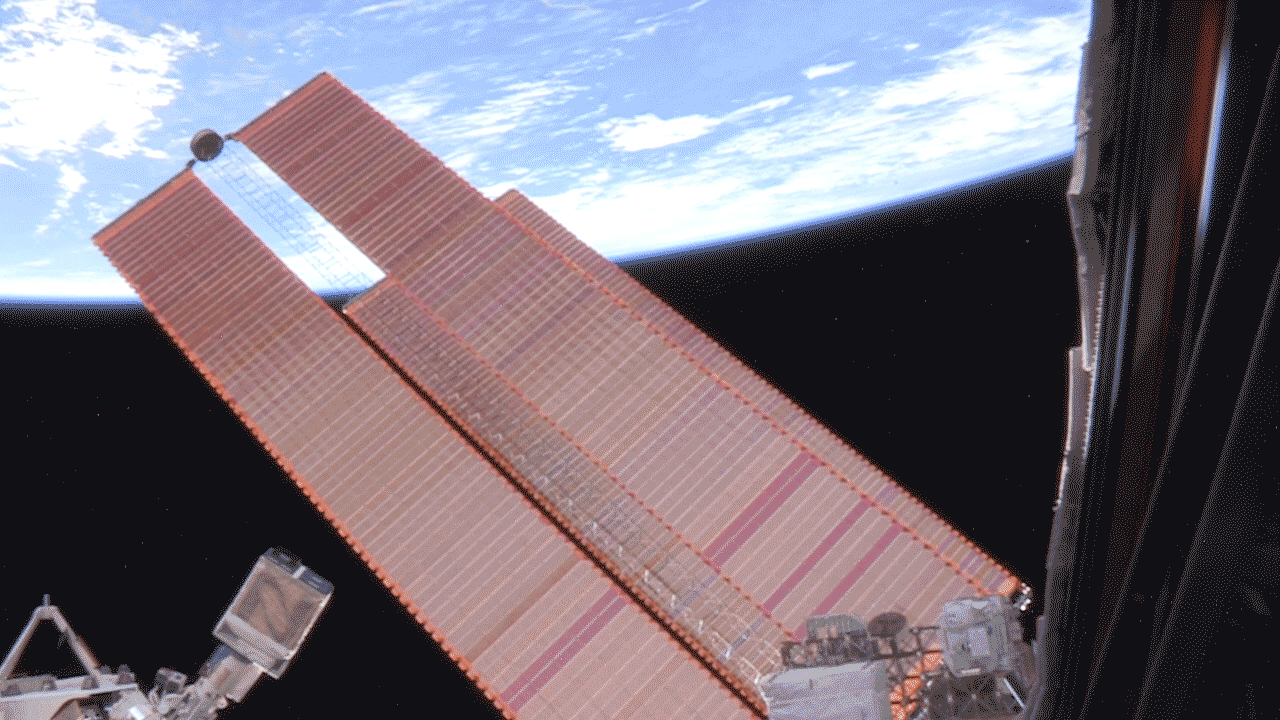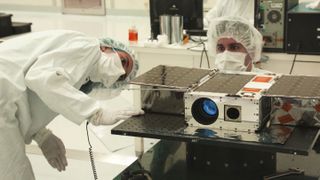
NASA has lost contact with a small satellite in orbit that has been hunting for alien planets for more than two years.
ASTERIA, or Arcsecond Space Telescope Enabling Research in Astrophysics, is a briefcase-size Cubesat spacecraft that scientists developed to search for exoplanets using instruments and components shrunk down for the small satellite. Researchers also aimed for ASTERIA to show how such small craft can be used to hunt for exoplanets.
Engineers last heard from ASTERIA on Dec. 5, 2019, and then lost touch with it. Ground teams on Earth will continue to make contact attempts until March. Now, while ASTERIA is currently out of reach, the craft — which launched on Nov. 20, 2017 — did exceed its expected two-month time frame to reach primary mission objectives. The craft additionally flew through three mission extensions.
Related: NASA Planet-Hunting Telescope Spots Massive Burp from a Comet

In a Jan. 3 statement, NASA officials said that the Cubesat showed that it is possible for small satellites to support larger planet-hunting missions, such as NASA's current Transiting Exoplanet Survey Satellite (TESS) or the now-defunct Kepler space telescope.
"ASTERIA observed a handful of nearby stars and successfully demonstrated that it could achieve precision measurements of the stars' brightness," NASA said in a statement. "With that data, scientists look for dips in a star's light that would indicate an orbiting planet passing between the satellite and the star. … Mission data is still being analyzed to confirm whether ASTERIA spotted any distant worlds."
During its mission extensions, ASTERIA tested autonomous technologies using artificial intelligence programs. The little craft used these technologies to observe targets including Earth, a comet, a spacecraft in geosynchronous orbit and stars that may host orbiting exoplanets.
This mission was a collaboration between NASA and the Massachusetts Institute of Technology, where astrophysicist Sara Seager serves as principal investigator of ASTERIA. The extended missions were partially funded by the Heising-Simons Foundation, which, in part, financially supports fundamental science research.
Follow Elizabeth Howell on Twitter @howellspace. Follow us on Twitter @Spacedotcom and on Facebook.

Bagikan Berita Ini














0 Response to "NASA Loses Contact with Tiny Exoplanet-Hunting Satellite - Space.com"
Post a Comment